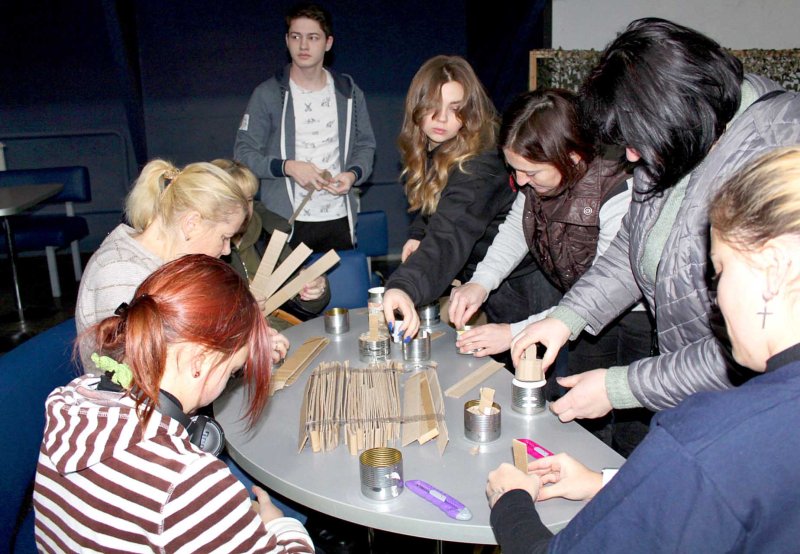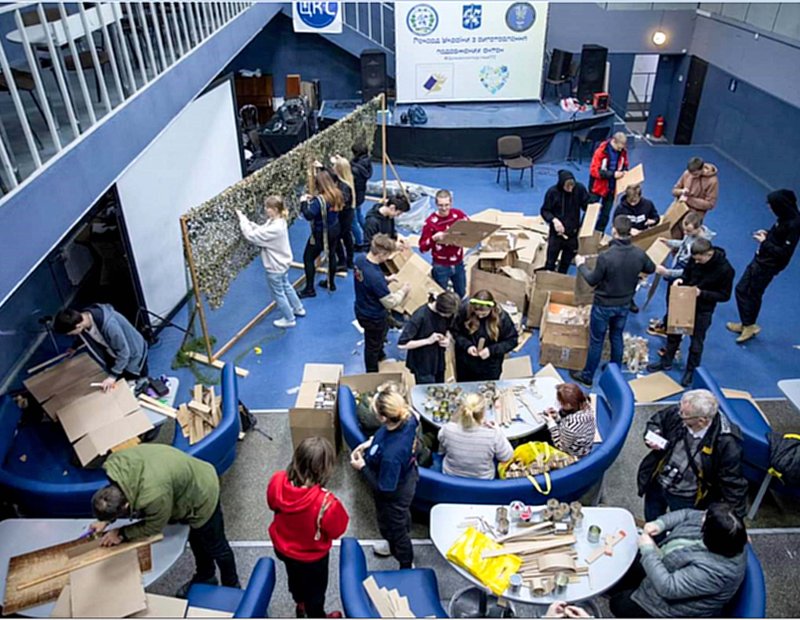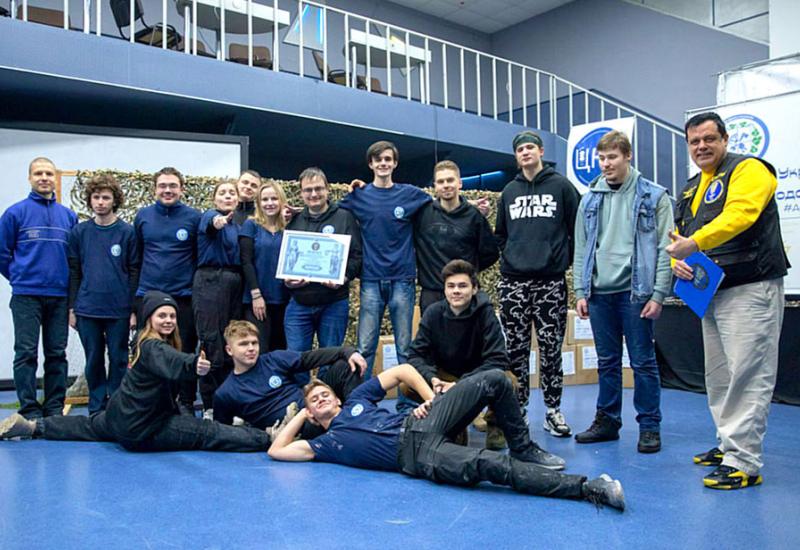Students and employees of Igor Sikorsky Kyiv Polytechnic Institute held another action in support of the Armed Forces of Ukraine. It was organized by the university's student trade union. It was called the Volunteer Day, although in fact it lasted not one day but one day - from December 16 to 17. During those 24 hours, the participants made elongated antennas for walkie-talkies, trench candles, and wove camouflage nets. Their efforts resulted in a new Ukrainian record for antenna manufacturing. By the way, this is the second record set by university volunteers: last year, on the occasion of the International Volunteer Day, Kyiv Polytechnics set a record for making trench candles for our soldiers.
The record-breaking weekend of volunteers began at 10:00 a.m. on December 16 at the Student Consolidation Center. Vitaliy Zorin, an expert of the National Register of Records of Ukraine, launched the fight for the record and the work began. The participants were divided into groups and worked in shifts all day long. And on the morning of December 17, the record was announced: 391 elongated antennas for walkie-talkies were made in 24 hours at one location! The record was registered in the National Register of Records of Ukraine.

In addition to the antennas, 1650 trench candles and more than 10 square meters of camouflage netting will be sent to the frontline. A total of 70 students and employees of Igor Sikorsky Kyiv Polytechnic Institute took part in the campaign, most of whom are representatives of IEE and IHF. They were also joined by some concerned Kyiv residents.
"This action was not, in fact, a struggle for a record for the sake of a record. We once again tried our best to provide significant assistance to our military, to all those who need it now - in times of full-scale war," said Igor Stepaniuk, chairman of the KPI student trade union. "In addition, during the work, we organized a round-the-clock stream with a link to an account for donations for antenna blanks. As a result, more than UAH 8000 was raised for it. This year, compared to last year, there were fewer participants. However, given the peculiarities of the technological process and the provision of the necessary materials, we did not want all participants to be present at the same time - practically one group replaced another and the work was not interrupted throughout the day."

Ihor Stepaniuk also answered several questions from Kyiv Polytechnic.
- To whom would you like to express your gratitude for the successful organization of the event?
- First of all, to everyone who responded to our call, came to the Volunteer Day and worked hard throughout the day - cutting cans and cable, twisting, soldering, filming and just supporting morally. We are also grateful to Igor Sikorsky Kyiv Polytechnic Institute graduates Serhiy Bonya and Vasyl Yurokin, who inspired us to make the antennas and allocated part of the funds for the materials. We are grateful to the Kyiv City Organization of Education and Science Workers of Ukraine, who helped us financially. We would also like to thank our technical partner, the Student Design Bureau.
- Can you tell us where everything made during the campaign will be sent?
- These are mainly the combat areas of the eastern and southern directions. The main thing is that we have satisfied a lot of requests from the military: everything that was made during the record setting has already been distributed.
- The campaign is over, so tell us a bit about your plans for future support of our soldiers.
- As soon as the brass bases arrive, we will make even more antennas. We also plan to increase the production of trench candles, as the demand for them is constantly growing due to the cold weather. Any of the readers of Kyiv Polytechnic can send us tins, paraffin and other components to help us make more candles. Perhaps we will start working in another direction, but we will not talk about it yet.
KPI students set a new record - 391 antennas in 24 hours for the needs of the Armed Forces. Each of these antennas is a connection for our military.
The volunteers worked clearly and harmoniously, creating antennas in 6 stages.

